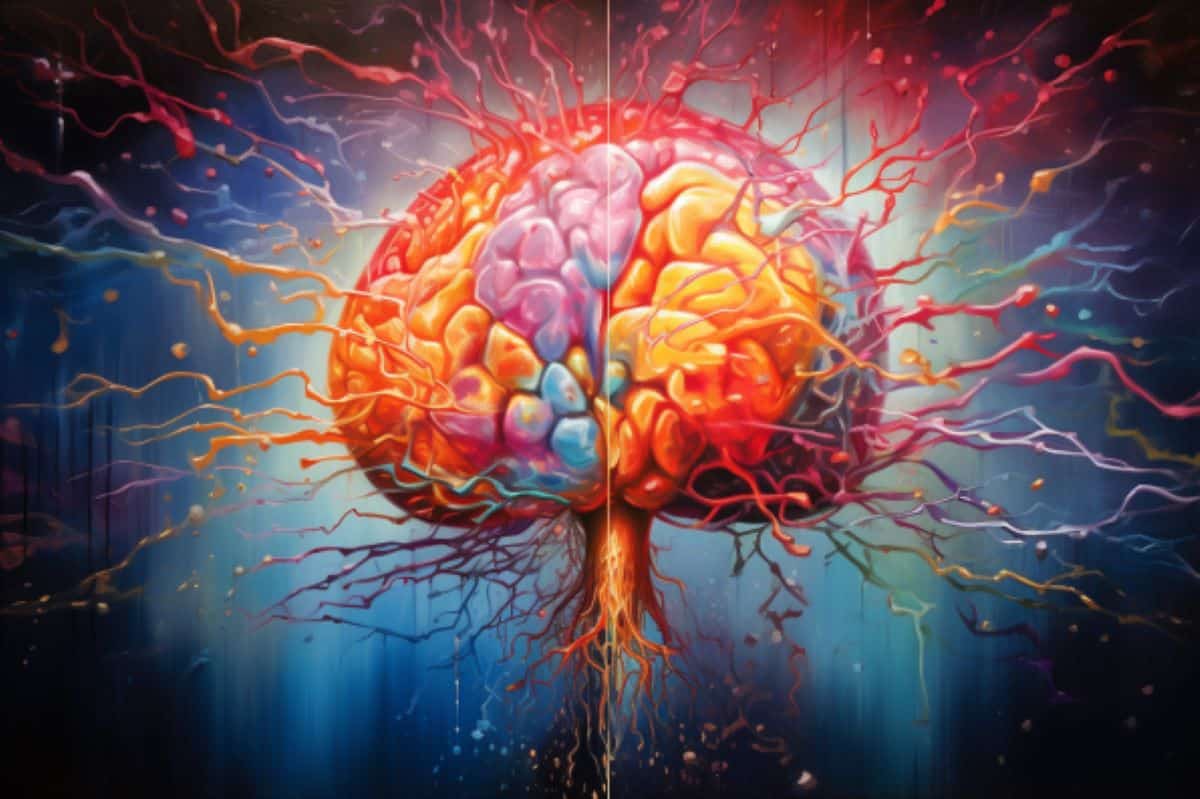Summary: Neuroscientists delved into the mechanisms behind true and false memories. Their study reveals that electrical signals in the hippocampus can differentiate between the imminent recall of authentic versus fabricated memories.
By monitoring neural activity in epilepsy patients, the team identified distinct patterns ahead of a correct or false recall. These findings not only offer insights into memory retrieval but may also pave the way for novel therapeutic interventions for disorders like PTSD.
Key Facts:
- Electrical signals in the hippocampus differ immediately prior to recollection of true and false memories.
- Compared to true recalls, the brain exhibits lower theta and high-frequency oscillations and higher alpha/beta oscillations before false memories.
- The degree of hippocampal activity can reflect the similarity between correct and false memory, whether it’s based on source or semantic context.
Source: University of Pennsylvania
Let’s say you typically eat eggs for breakfast but were running late and ate cereal. As you crunched on a spoonful of Raisin Bran, other contextual similarities remained: You ate at the same table, at the same time, preparing to go to the same job. When someone asks later what you had for breakfast, you incorrectly remember eating eggs.
This would be a real-world example of a false memory. But what happens in your brain before recalling eggs, compared to what would happen if you correctly recalled cereal?
In a paper published in Proceedings of the National Academy of Sciences, University of Pennsylvania neuroscientists show for the first time that electrical signals in the human hippocampus differ immediately before recollection of true and false memories. They also found that low-frequency activity in the hippocampus decreases as a function of contextual similarity between a falsely recalled word and the target word.
“Whereas prior studies established the role of the hippocampus in event memory, we did not know that electrical signals generated in this region would distinguish the imminent recall of true from false memories,” says psychology professor Michael Jacob Kahana, director of the Computational Memory Lab and the study’s senior author. He says this shows that the hippocampus stores information about an item with the context in which it was presented.
Researchers also found that, relative to correct recalls, the brain exhibited lower theta and high-frequency oscillations and higher alpha/beta oscillations ahead of false memories. The findings came from recording neural activity in epilepsy patients who were already undergoing invasive monitoring to pinpoint the source of their seizures.
Noa Herz, lead author and a postdoctoral fellow in Kahana’s lab at the time of the research, explains that the monitoring was done through intracranial electrodes, the methodology researchers wanted to use for this study. She says that, compared to scalp electrodes, this method “allowed us to more precisely, and directly, measure the neural signals that were generated in deep brain structures, so the activity we are getting is much more localized.”
Subjects studied a list of unrelated words and were distracted before being asked to remember words, says Herz, now an assistant professor of neurology at Thomas Jefferson University, in Philadelphia. Researchers analyzed patterns of electricity generated in the hippocampus, capturing brain activity leading up to correct or false recall.
Beyond the distinction between true and false memories, researchers predicted that activity in the hippocampus would reflect the degree of similarity between the correct and false memory. They indeed found that a notable reduction in low-frequency activity was associated with greater similarity between the contexts in which false and correct items were learned.
A similar context in this study meant a patient recalling a word from a prior list in the experiment instead of the target list, whereas a different context is recalling a word that was never part of the experiment.
“The words were presented when the patient was sitting in the same room, looking at the same computer, having the same experimenter next to him,” Herz says, “and these words were also presented more recently in time, so all of these different factors mean that prior list intrusions should be more similar, in terms of the context in which they were presented, to the correct target list.”
This was a way of testing hippocampal response to different words presented from similar source contexts, but what happens in the brain when someone recalls a word that is incorrect but semantically similar to the right word? Researchers tested this, too.
They showed patients words in three categories, such as flowers, fruits, and insects. As an example, Herz says if the list includes “rose” and “lily” but a person recalls “sunflower,” that is semantically similar whereas saying “clock” is not. But perhaps “clock” was on a prior word list in the study; the paper notes a recalled word tends to be similar in at least one context, either source or semantic.
As hypothesized, researchers found the same brain pattern with semantic similarity as they did with source similarity: a reduction in hippocampal low-frequency activity.
Herz says the overall findings deepen the understanding of how the brain enables memory retrieval, and the authors note that predicting false memories at a single-subject level is particularly important when false recalls cause distress.
“Individuals suffering from stress-related psychopathology, such as post-traumatic stress disorder, often experience memory intrusions of their traumatic experiences under contexts that are safe and dissimilar to the traumatic incident. Targeted interventions that disrupt retrieval of intrusive memories could spawn novel therapies for such clinical conditions,” the researchers write.
Michael Kahana is the Edmund J. and Louise W. Kahn Term Professor of Psychology in the School of Arts & Sciences and director of the Computational Memory Lab at the University of Pennsylvania.
Noa Herz is an assistant professor of neurology at Thomas Jefferson University and a former postdoctoral fellow in the Kahana’s lab at the University of Pennsylvania.
Other co-authors are Penn’s Bernard Bukala, a former research intern in the Computational Memory Lab, and James Kragel of the University of Chicago.
About this memory research news
Author: Erica Moser
Source: University of Pennsylvania
Contact: Erica Moser – University of Pennsylvania
Image: The image is credited to Neuroscience News
Original Research: Closed access.
“Hippocampal activity predicts contextual misattribution of false memories” by Michael Jacob Kahana et al. PNAS
Abstract
Hippocampal activity predicts contextual misattribution of false memories
Failure of contextual retrieval can lead to false recall, wherein people retrieve an item or experience that occurred in a different context or did not occur at all. Whereas the hippocampus is thought to play a crucial role in memory retrieval, we lack understanding of how the hippocampus supports retrieval of items related to a target context while disregarding related but irrelevant information.
Using direct electrical recordings from the human hippocampus, we investigate the neural process underlying contextual misattribution of false memories. In two large datasets, we characterize key physiological differences between correct and false recalls that emerge immediately prior to vocalization.
By differentiating between false recalls that share high or low contextual similarity with the target context, we show that low-frequency activity (6 to 18 Hz) in the hippocampus tracks similarity between the current and retrieved context. Applying multivariate decoding methods, we were able to reliably predict the contextual source of the to-be-recalled item.
Our findings elucidate one of the hallmark features of episodic memory: our ability to distinguish between memories that were formed on different occasions.








